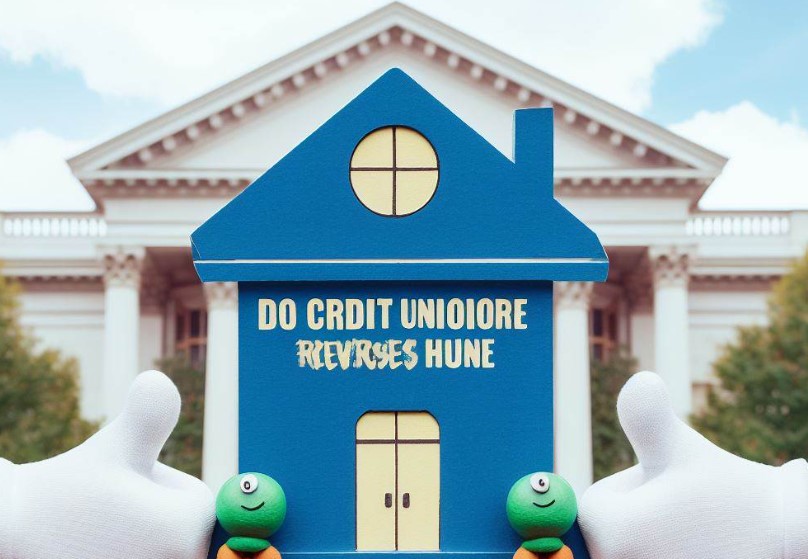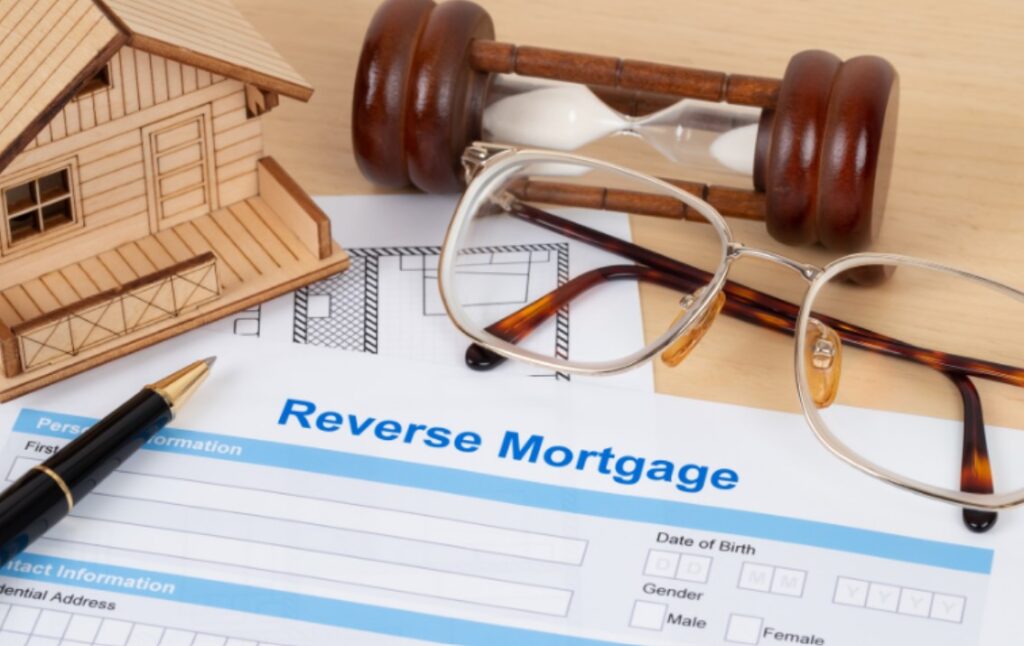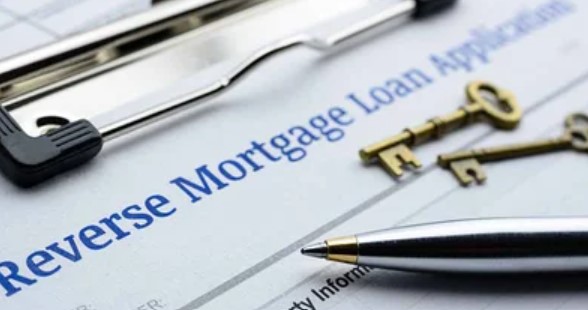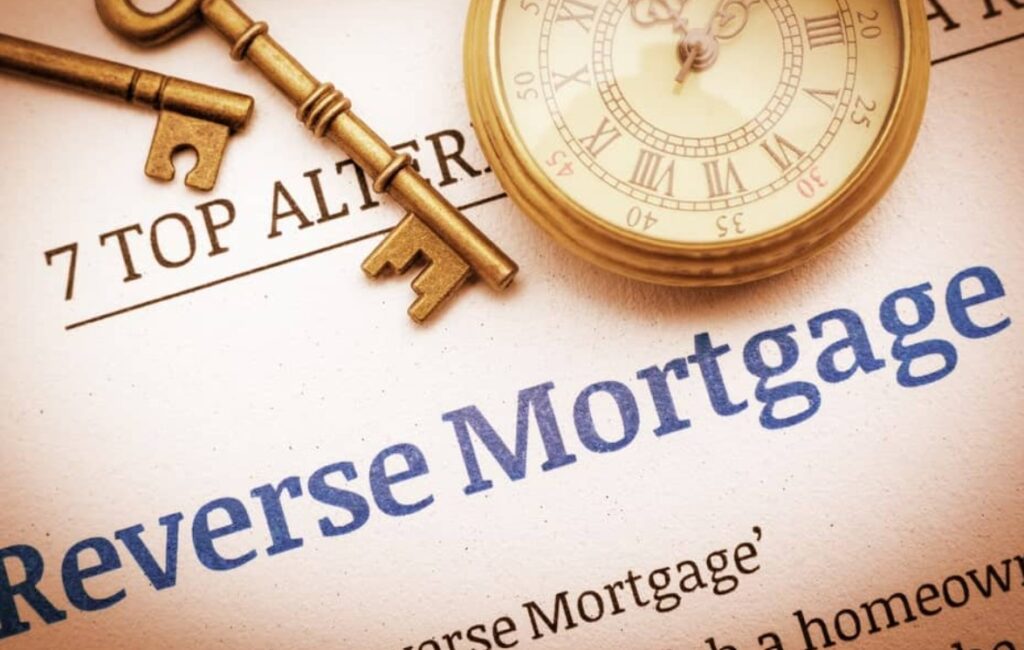This article aims to provide Do Credit Unions Offer Reverse Mortgages? Reverse mortgages are financial instruments that allow homeowners, typically seniors, to draw on the equity in their homes. Some credit unions, like CU SoCal, provide reverse mortgages to their members. These products can be a way to supplement income, pay off existing mortgages, and provide financial flexibility in retirement.
Key Takeaways
- Some credit unions offer reverse mortgages as part of their loan products.
- Reverse mortgages from credit unions can provide tax-free income and eliminate monthly mortgage payments.
- CU SoCal partners with Community Mortgage Funding, LLC to offer reverse mortgages.
Do Credit Unions Offer Reverse Mortgages?
Yes, some credit unions offer reverse mortgages. However, not all credit unions may have this option, so it’s important to check with individual institutions to see if they provide reverse mortgage products and what their specific terms and conditions are.

Understanding Reverse Mortgages at Credit Unions
Credit unions are not-for-profit organizations that serve their members, and when it comes to reverse mortgages, they often partner with specialized lenders. This collaboration ensures that members receive expert guidance throughout the reverse mortgage process.

For instance, CU SoCal has teamed up with Community Mortgage Funding, LLC, to offer reverse mortgages, combining their commitment to members with the expertise of a dedicated mortgage provider.
Reverse Mortgage Features at Credit Unions:
- Tax-free income: The funds from a reverse mortgage are typically tax-free, providing a financial boost without additional tax liability.
- No monthly mortgage payments: Reverse mortgages do not require monthly payments, alleviating financial pressure on homeowners.
Eligibility and Requirements
To be eligible for a reverse mortgage through a credit union, there are specific requirements that must be met. The homeowner must be at least 62 years old, the property must be the primary residence, and there must be sufficient equity in the home.
Credit unions like CU SoCal ensure that members meet these criteria and provide access to HUD-approved counselors for further assistance.
Reverse Mortgage Process with Credit Unions
The process of obtaining a reverse mortgage through a credit union involves several steps, including counseling, application, and approval. Credit unions guide their members through each stage, ensuring a smooth and transparent experience. Members can start by requesting a free proposal or speaking directly with a loan consultant to explore their options.

Benefits of Choosing a Credit Union for Reverse Mortgages
Choosing a credit union for a reverse mortgage comes with several benefits. Members can expect personalized service, competitive rates, and the assurance that their financial well-being is a priority. Credit unions’ not-for-profit nature means they often have members’ best interests at heart, making them a trustworthy option for reverse mortgages.
Comparing Credit Union Reverse Mortgages with Other Lenders
When considering a reverse mortgage, it’s essential to compare options. Credit unions may offer more favorable terms compared to traditional banks or other financial institutions. They often provide a more member-centric approach, which can be beneficial during the reverse mortgage process.

Reverse Mortgage Counseling and Support
Credit unions often go the extra mile to ensure their members are well-informed about reverse mortgages. They typically provide comprehensive counseling, often through HUD-approved counselors, to help members understand the benefits and obligations associated with reverse mortgages.
This educational approach empowers members to make decisions that align with their financial goals and retirement plans. The support doesn’t end with counseling; credit unions provide ongoing assistance to address any questions or concerns that arise during the life of the loan.
The emphasis on education and support is a testament to the credit union’s commitment to its members. It’s not just about providing a financial product; it’s about ensuring that members are equipped with the knowledge to manage their finances effectively. This level of support can make a significant difference for seniors looking to maintain their independence and financial security in retirement.
The Financial Implications of Reverse Mortgages
When members of credit unions opt for a reverse mortgage, they must consider the long-term financial implications. While these loans can offer immediate financial relief and flexibility, they also have an impact on the homeowner’s equity and the estate they may wish to leave to heirs.

Credit unions are known for their transparency in explaining these implications, ensuring members understand how a reverse mortgage will affect their financial future.
It’s crucial for members to consider how a reverse mortgage might affect their eligibility for certain government benefits or their ability to finance future needs.
Credit unions typically provide resources and advice to help members navigate these complex considerations. By doing so, they uphold their philosophy of putting members’ needs first and fostering financial well-being.
Reverse Mortgages for Home Purchases
An often-overlooked aspect of reverse mortgages offered by credit unions is the ability to use them for purchasing a new home. This can be particularly appealing for seniors looking to downsize or relocate for retirement.
Credit unions can guide members through using a reverse mortgage to buy a home, which can streamline the transition to a new residence while preserving other retirement savings.
This option opens up new possibilities for retirees, allowing them to move into homes that better suit their current needs without the financial strain of a traditional mortgage.
Credit unions stand ready to provide the necessary expertise to navigate this less traditional use of reverse mortgages, ensuring members can take full advantage of the benefits.
Reverse Mortgage Payout Options
Credit unions offer a variety of payout options for reverse mortgages, catering to the diverse needs of their members. Whether it’s a lump sum, monthly payments, a line of credit, or a combination of these, members have the flexibility to choose the option that best suits their financial situation.

Credit unions work closely with members to tailor the payout to their specific needs, whether it’s funding home renovations, covering healthcare costs, or supplementing retirement income.
The choice of payout option is a critical decision that can affect a member’s financial strategy. Credit unions provide the expertise to help members understand the implications of each option, ensuring they make an informed choice that aligns with their long-term financial planning.
Impact on Heirs and Estate Planning
One of the most sensitive topics surrounding reverse mortgages is their impact on heirs and estate planning. Credit unions address this concern by providing clear information on how a reverse mortgage loan affects the inheritance process.
Members are informed that the loan must be repaid upon their passing or when the home is no longer their primary residence, which can influence the value of the estate left to heirs.
Credit unions often provide resources and referrals to estate planning experts to help members integrate a reverse mortgage into their overall estate plan. This ensures that members can make arrangements that reflect their wishes and provide for their heirs in the best way possible.
Should You Call A Bank Or Credit Union For A Reverse Mortgage?
When considering a reverse mortgage, it’s essential to seek expertise. While banks and credit unions can provide reverse mortgages, they may not specialize in them. The complexity of reverse mortgages requires advanced training and experience, which specialized reverse mortgage lenders possess.

Credit unions are excellent for various banking needs, but for reverse mortgages, their focus may not be as sharp. A specialist ensures the reverse mortgage is set up correctly, providing peace of mind and protecting your largest asset—your home. It’s about getting it right the first time and working with someone who has a vested interest in your financial well-being.
For a decision as significant as a reverse mortgage, turning to a dedicated specialist rather than a generalist at a bank or credit union is advisable. This ensures that the unique nuances and long-term implications of such a loan are fully understood and expertly managed.
Where Is The Best Place To Get A Reverse Mortgage?
The best place to get a reverse mortgage is from a lender that specializes in these types of loans. A specialized reverse mortgage lender has the expertise and experience to guide homeowners through the process, ensuring they understand all aspects of the loan.

These lenders focus solely on reverse mortgages, providing them with a depth of knowledge that general financial institutions may not have. They are equipped to tailor the reverse mortgage to fit the homeowner’s specific financial situation and retirement goals.
Choosing a lender that prioritizes reverse mortgages means receiving personalized attention and a loan structured to your unique needs. It’s not just about the immediate benefits but also about how the loan will fit into your long-term financial plan.
What Is The Negative Side Of A Reverse Mortgage?
Reverse mortgages offer a stream of income for homeowners of retirement age, but they come with several drawbacks. These loans can carry upfront and ongoing costs, including mortgage insurance premiums, origination fees, and servicing fees.

The variable interest rates on most reverse mortgages mean that the loan balance can fluctuate and potentially increase over time. This results in a gradual reduction in home equity, which can affect the homeowner’s asset value and the inheritance for their heirs.
Additionally, if the homeowner fails to pay property taxes, homeowners insurance, or maintain the home, the loan may need to be repaid sooner than expected.
These factors make it crucial for homeowners to consider their long-term financial plans and explore alternatives like refinancing, downsizing, or home equity loans before opting for a reverse mortgage.
Who Cannot Get A Reverse Mortgage?
To be eligible for a reverse mortgage, homeowners must meet certain criteria. Those who do not meet the minimum age requirement of 62, do not have sufficient home equity, or whose homes are not their primary residence cannot qualify for a reverse mortgage.
Furthermore, homeowners who cannot afford the associated costs, such as property taxes and insurance, or those who plan to move in the near future, may find a reverse mortgage unsuitable.
It’s also important to note that having a reverse mortgage can affect eligibility for government benefits like Medicaid. Homeowners who wish to leave their home to their heirs without encumbrances may also want to consider other options, as a reverse mortgage can complicate estate plans.
Conclusion
Credit unions like CU SoCal offer reverse mortgages, providing their members with a valuable tool to enhance their financial stability in retirement. These institutions stand out with their member-first philosophy, offering reverse mortgages that are designed to meet the unique needs of their community. With the right guidance and support, credit union members can confidently navigate the reverse mortgage process and secure their financial future.
People Also Ask
Am I eligible for a reverse mortgage through a credit union?
Eligibility for a reverse mortgage typically requires the homeowner to be at least 60 years old, have substantial equity in their home, and the property must be the primary residence. Credit unions may have additional membership requirements that need to be met.
How much money can I receive from a reverse mortgage with a credit union?
The amount you can borrow through a reverse mortgage depends on several factors, including your age, the appraised value of your home, current interest rates, and the specific policies of the credit union. Generally, the older you are and the more equity you have, the more you can borrow.
Can I still get a reverse mortgage if I currently have a mortgage on my home?
Yes, you can still get a reverse mortgage if you have an existing mortgage. However, the reverse mortgage must be large enough to pay off the existing mortgage. This is a common use for reverse mortgages, as it can eliminate monthly mortgage payments.
Is it true that the bank cannot take my home as long as I am alive with a reverse mortgage?
With a reverse mortgage, you can stay in your home as long as you comply with the loan terms, which typically include maintaining the property and staying current on property taxes and insurance.
A multifaceted professional, Muhammad Daim seamlessly blends his expertise as an accountant at a local agency with his prowess in digital marketing. With a keen eye for financial details and a modern approach to online strategies, Daim offers invaluable financial advice rooted in years of experience. His unique combination of skills positions him at the intersection of traditional finance and the evolving digital landscape, making him a sought-after expert in both domains. Whether it’s navigating the intricacies of financial statements or crafting impactful digital marketing campaigns, Daim’s holistic approach ensures that his clients receive comprehensive solutions tailored to their needs.








